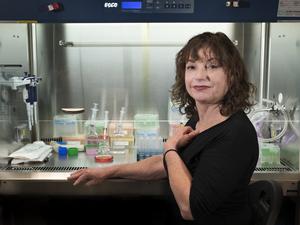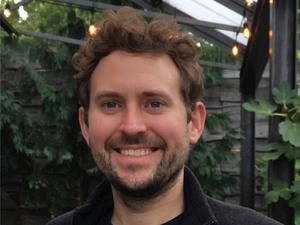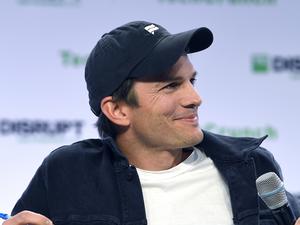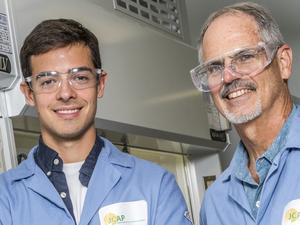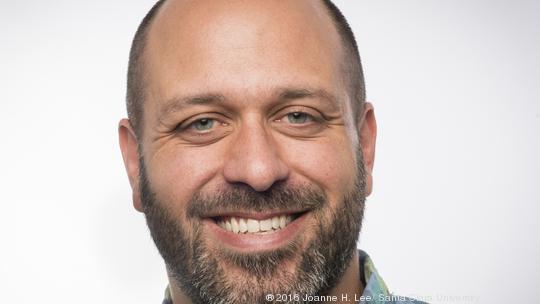
Temperature. Salinity. Plankton. Oxygen. These are some of the variables that most affect mariculture farmers — people who cultivate fish, crustaceans, mollusks and plants in the ocean.
Ocean-placed sensors can tell such aquafarmers about current conditions. But making sense of that data can be difficult, as can trying to extrapolate from it how the ocean is likely to change, said Jonathan LaRiviere, CEO and co-founder of Scoot Science Inc.
That's where Santa Cruz-based Scoot comes in. Its software, dubbed SeaState, can take data from ocean sensors and use it to predict events like streams of low oxygen water or severe changes in underwater conditions.
"The challenge has been that (sensors provide) a deluge of data," LaRiviere told the Business Journal in an interview earlier this year. SeaState works with various devices "to get at the essential data streams and the essential signals that you need to do ocean forecasting and analytics."
LaRiviere knows a little something about the sea. He studied ocean sciences at the University of California, Santa Cruz, which is where he met his co-founder, Evan Goodwin.
As part of their research, LaRiviere and Goodwin discovered that fish farmers didn't have access to the same kind of forecasting capabilities that plant farmers on land. There are plenty of services that can help those engaged in agriculture analyze their soil or forecast how weather conditions will affect their crops. But there was little that was comparable for aquafarmers.
Such ocean farmers had plenty of data available to them, but it wasn't easy to use. What's more the most powerful data science techniques that are used to analyze agricultural data weren't commonly used to study the oceans.
Sensing an opportunity, Goodwin and LaRiviere founded Scoot — originally an acronym for Santa Cruz Ocean Observing Team — then began working on its software.
"We dropped the acronym and became Scoot Science because it was more fun to say and all the oceanographers recognized the double 'O' as some sort of ocean data business," LaRiveire said.
- Company: Scoot Science
- Headquarters: Santa Cruz
- CEO: Jonathan LaRiviere
- Year founded: 2017
- Number of employees: 19
- Website: scootscience.com
SeaState can alert aquafarmers to emerging threats
Ocean data is complex and challenging to analyze, LaRiviere said. In much the same way that wind speed and temperature can be radically different when measured at one place and altitude compared to another, ocean currents and subsurface temperatures can vary widely between places and depths, he said. SeaState attempts to take that into account, compiling and analyzing ocean data by latitude, longitude, depth and time, LaRiviere said.
The software can help highlight near-term threats fish farms, helping owners avert disaster. It can also identify emerging challenges, such as warming ocean temperatures or more frequent algae blooms that can affect yields. And it can help fish farmers assess how they've reacted to previous threats to improve their response to future ones.
In addition to offering such ocean data analysis services, Scoot also offers fish farmers help on the business side, helping them analyze their cash flow and risks. Those assessments, which rely on its ocean data analysis, can help them get easier access to financing and insurance.
Additionally, the company works with institutional investors who are looking to invest in aquafarming operations, helping them identify good bets.
For access to its SeaState ocean data analysis software, Scoot Science charges customers a subscription fee, LaRiviere said. For its risk and finance service, the company charges transaction fees, he said.
Earlier this month, Scoot raised a $4.1 million seed round led by Third Kind Venture Capital. Climate Capital and Liquid 2 Ventures also invested, bringing Scoot's total funding to $6.4 million.
The problem of analyzing ocean conditions is pressing, because aquaculture is expected to become one of the key sources of food in the future. The indusry has a relatively low carbon footprint compared to other sources of animal-based protein. Better data science can help expand it to areas where its not currently found, LaRiviere said.
"That is a key part of solving some of the major climate change challenges that the world faces today," he said.
